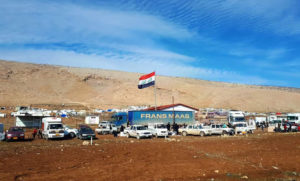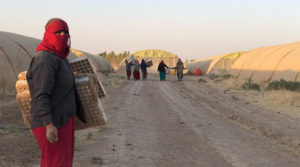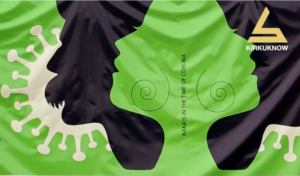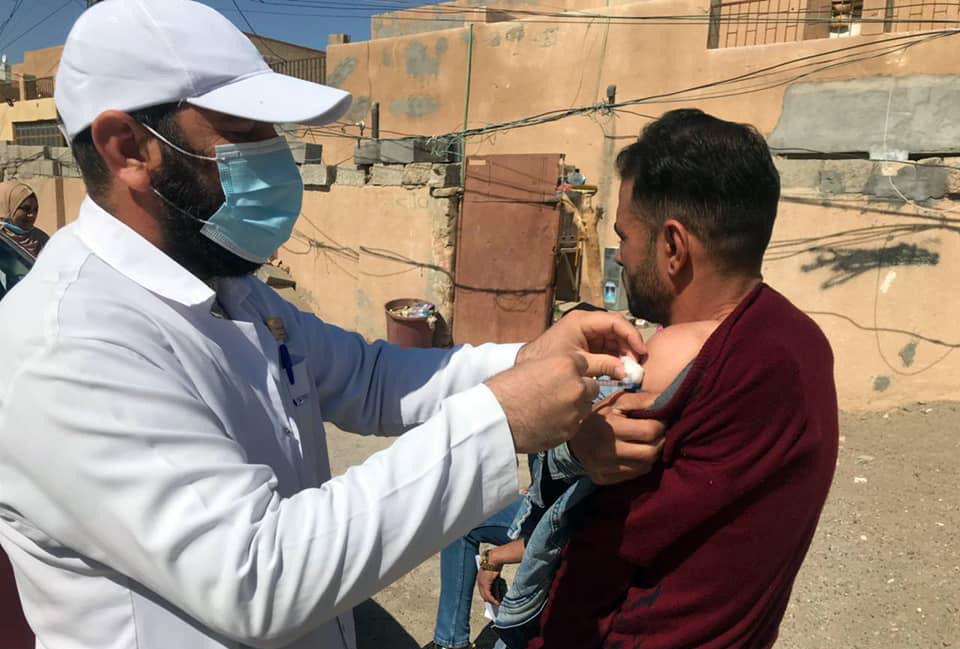
Ahmed Mahmoud Al-Obaidi, a young internally displaced person IDP from Ninewa province in Kirkuk, performs voluntary tasks in chasing the displaced, reaching them, and then transferring health teams to those sites in order persuade them to receive the Coronavirus vaccine.
Three different mobile teams work with Al-Obaidi, whose tasks are to coordinate between the displaced and the health authorities for the purpose of obtaining vaccines and even unaffordable medicines for the elderly.
After the outbreak of the Corona epidemic two years ago, I and a group of displaced youths formed voluntary teams whose mission is to facilitate the vaccination by the displaced, especially for the elderly who do not know the importance of obtaining a vaccine or how to get it.
In the beginning, the displaced felt that it was difficult to receive the vaccine because of the administrative procedures that were put in place by the Ministry of Health. We contributed greatly to giving hundreds of vaccines through coordination with the medical committees that spread in residential neighborhoods of Kirkuk.
Al-Obaidi, 22.
Volunteer teams contributed to the vaccination of more than 750 displaced people.
According to the latest statistics of the International Organization for Migration (IOM), there are more than 91,000 IDPs in Kirkuk, almost 1.2 million all over Iraq, including Iraqi Kurdistan region.
During the war against the Islamic State of Iraq and Syria ISIS from 2014 up to 2017, thousands of people from Hawija district south of Kirkuk, Ninewa, Diyala, Salah al-Din and even Babil province were displaced towards Kirkuk, although the camps have been closed since 2020 by the Iraqi government yet still some of the displaced have not yet returned to their home towns and reside different areas of Kirkuk.
Statistics obtained by KirkukNow from the Kirkuk Health Department show there are 90 vaccination centers throughout the province, including mobile teams and outlets to the displaced.
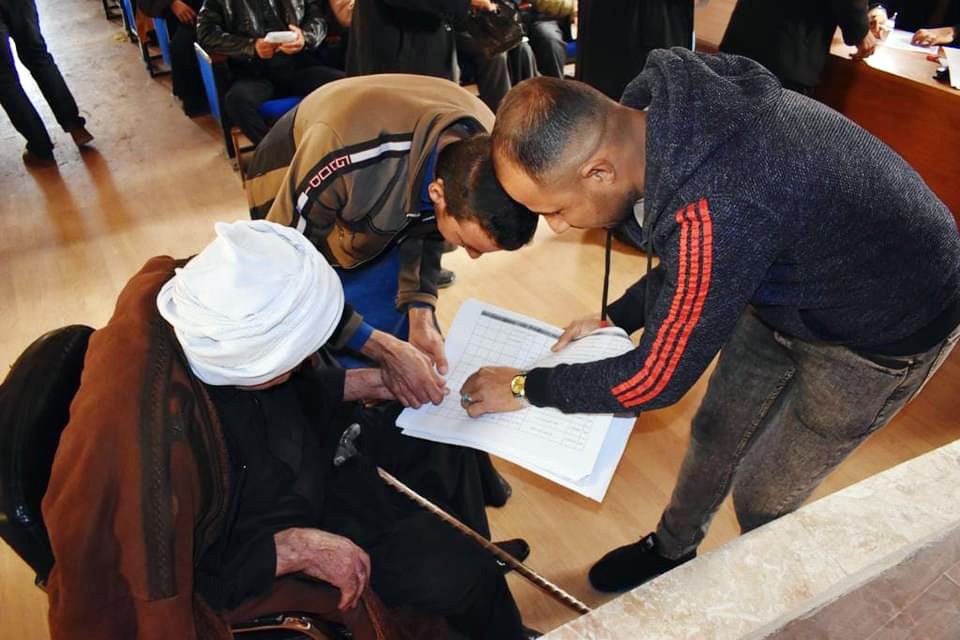
Afifa Hammoud, 34, from Nineveh, said the obstacles in electronic registration do not exist anymore and there are facilities for taking the vaccine, “but many of us do not want to take the vaccine because the issue took other dimensions and was given more than its size.”
“The vaccine has become an obligation on us, and I visited the health clinic in Al-Wasiti neighborhood and took the vaccine in order to complete the transactions in government departments, and there is no other thing than that,” she pointed out.
On August 22, 2021, the Kirkuk administration, based on the decision of the Iraqi Council of Ministers, stipulated that state employees are to take the Corona vaccine, a procedure to allow them to work, while stressing that the transactions of department for the visitors should not be conducted unless they have a vaccination card or a Corona examination card.
Persons who have medical reports that prove that they are unable to take the vaccine, or who have not been infected with the Coronavirus for three months, are exempted from the decision.
Not only me, but thousands like me do not want the vaccine which does not prevent infection.
Hassan Omar Al-Khalidi.
The volunteer teams contributed to the vaccination of more than 750 people from the provinces of Nineveh, Salah al-Din and Diyala in the neighborhoods of Kirkuk, in coordination with the health teams, Al-Obaidi confirmed.
He explained that the tasks of the awareness team are to facilitate the affairs of the displaced in coordination with the health teams of the Kirkuk Health Department which provides all necessary assistance for the IDPs to take the vaccine.
Some displaced people prefer not to receive the dose unless they are obliged because they have heard lots of rumors about the negative consequences of Covid vaccination despite the local and global efforts by the World Health Organization (WHO) which stressed that the vaccine is the only way to confront the Corona pandemic.
Hassan Omar Al-Khalidi, an IDP from Diyala, told KirkukNow, “the vaccine is available and the difficulties we were facing are over but we will not take it and don’t ask me why. I do not want to take the vaccine.”
Not only me, but thousands like me who do not want the vaccine, which is not a prevention of infection, because Corona and its vaccine are a political game and a struggle between the big powers that are intended to destroy the economy of the poor countries,” al-Khalidi believes.
In a loud voice, he says: “My family and I, if we reach death, we will not take the vaccine for whatever reason.”
This comes at a time when the Supreme Judicial Council decided in August 2021 to take legal measures against anyone who incites people to refuse to take the Corona vaccine.
There are currently three types of Corona vaccine available in Kirkuk Governorate, which are Pfizer, AstraZeneca and Sinopharm, and they are intended for everyone. So far, 701,317 doses of the three types of vaccine have been given to citizens, according to official statistics that did not indicate the number of the vaccinated IDPs.
For his part, the Director General of Kirkuk Health Department Nabil Hamdi Bushnaq said they seek to reach all residents of Kirkuk with the vaccine “because it contributes to reducing infections and increasing the immunity of the people.”
He confirmed that there is no difficulty in taking the vaccine which takes few minutes.
In Kirkuk, almost 90,000 people were infected since the outbreak of the pandemic in February 2020, and 1,489 deaths were recorded, including the locals and the displaced.
Iraq has administered over 10 million doses of Covid-19, including over 400,000 in Sulaymaniyah. The country has registered 23 million positive cases and over 25,000 deaths since February 2020.
This article was originally published on KirkukNow. This article can be viewed in Arabic, Kurdish or Turkish via KirkukNow.

